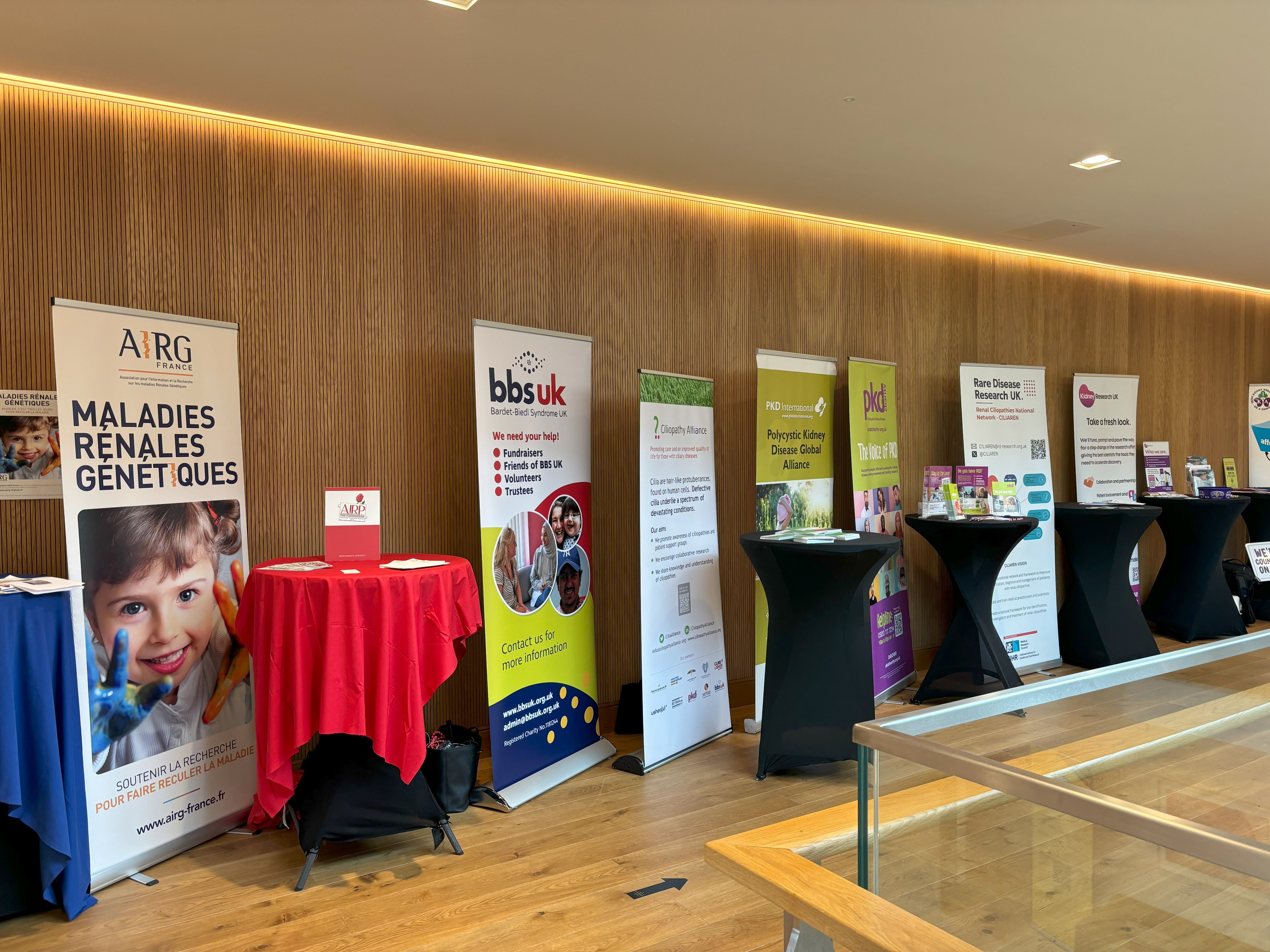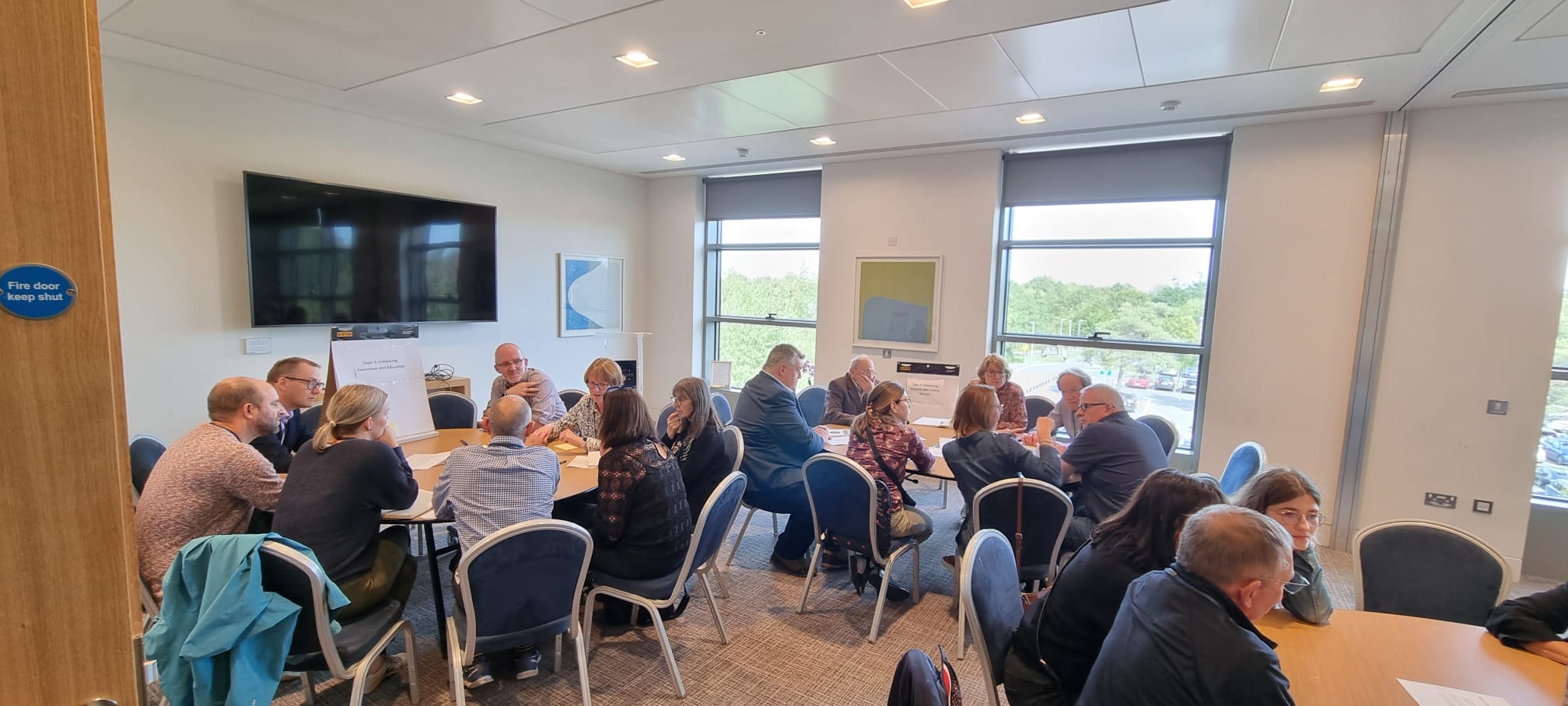
Cilia24 Dublin
We held a patient meeting ahead of the main meeting and a number of clinicians and researches were invited to join our 'World Cafe'. This gave us the opportunity to work together on the most pressing issues of the Ciliopathy patient community. Over 70 of us, were given themes to talk about and there was no shortage of ideas.
We followed this up with a Q&A session with clinicians and researchers.
The key themes were:-
- Patients want better access to preimplantation, antenatal and newborn screening programmes
- We need a single source of info - either via support groups or via rare disease newtorks for clinicians/patients which has been verified by a consensus of experts. How do we get round the privacy concerns of rare disease registries?
- There is disparity dependent on where you live on what care you receive. The day allowed us to build relationships with people from other countries to share 'best practice' models. We also had long discussions on how to set up new support groups.
- We need patient advocates to get involved in research. Through concept to market. They also need training. Need to be treated as peers to avoid patient enagement tick boxing.
- Lots of discussions on how we can continue to get funding for research.
- There is a funding gap for patient advocacy. We need to make sure that we have passionate empowered patient advocates who are reimbursed for their expenses and time to attend meetings. Patient engagement is currently reliant on good will. Many of the charities are run entirely by volunteers who don't get reimbursement for their time. We should try and get PPI funding included in all grant applications. This probably needs to be addressed before we can ask anymore of our existing patient cohort.
The meeting was a great illustration of how enthusiastic the delegates were in their work – which gives us much hope to the families affected by ciliopathies that there are so many intelligent and enthusiastic people devoting their lives to help us better understand the conditions and to find cures and treatments.

This was also the first meeting that there has been a strong pharma and industry presence and it was great for the patients to meet some key players but also to get a better understanding of how treatments come to market, the huge amount of money involved and the timelines.
The opportunity for us to talk to clinicians and researchers away from the clinical environment is unique and very special. Many of us who have access to more established services and support groups know people in our community very well and it is great to reconnect. But for those people that live in counties where services are not so established this is an invaluable opportunity to learn from the other support groups but also to build up their network of interested clinicians.
The meeting also gave us opportunities to tell our personal stories – many of the delegates don’t have access to patients directly and we hope that by us sharing our stories we could encourage them to continue working in the world of cilia and give you them more impetus to help fix these conditions.
We were also impressed with the Lay Summary posters and hope that they will continue to the next meeting. Being able to communicate complex science to the general public is difficult but essential if we are going to get funding from alternative sources.
Many thanks to Ollie and his team for the great warm Irish welcome and to everyone involved in a really interesting conference.
Watch this space to see how we can help address some of these issues.
Prepared by Fiona Copeland, Trustee of CAUK